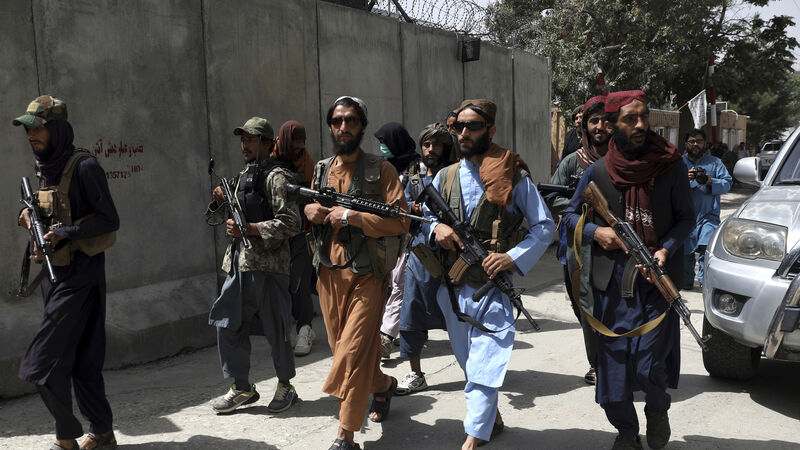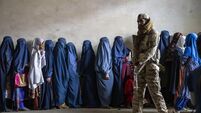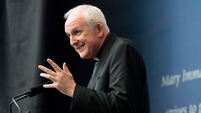Irish Islamic cleric: West must ensure no return to Taliban 'dark days'

Taliban fighters patrol in Wazir Akbar Khan neighbourhood in Kabul on Wednesday. Picture: AP/Rahmat Gul
A prominent Irish Islamic cleric said Ireland and other Western governments should use their levers of power over the Taliban around aid, trade and diplomatic recognition to ensure there is no return to the “dark days of the 90s”.
Dr Umar Al-Qadri said there were “mixed and conflicting reports” from different parts of Afghanistan regarding the reality of “new Taliban” that the extremist outfit is now eager to portray to the outside world.













